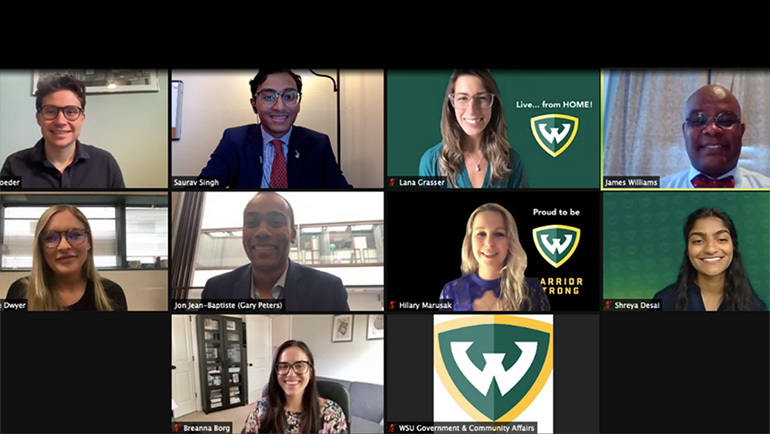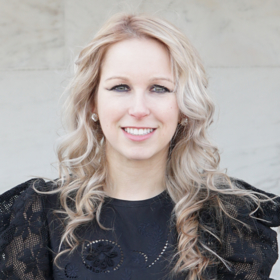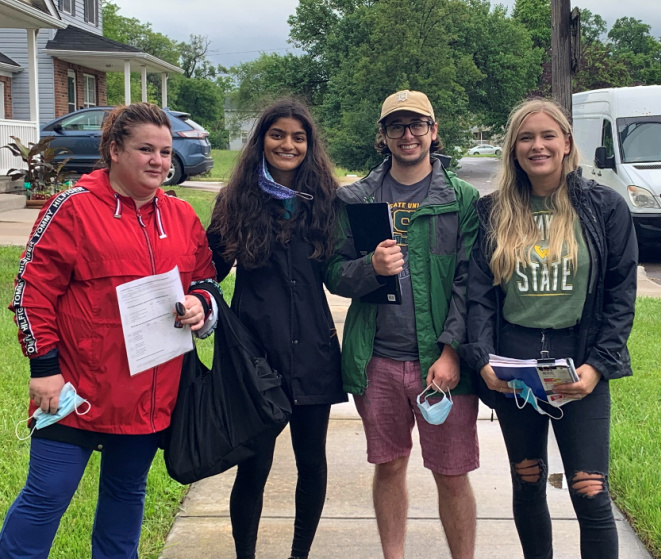
Science Policy Network-Detroit has had a busy first year.
Known as SciPol-Detroit — a collaborative consisting of Wayne State University students, scientists, scholars and community members — the organization set out to focus on how to better communicate science and advocate for science-based policies.
In partnership with WSU’s Office of Government and Community Affairs, SciPol-Detroit recently succeeded in its goal of connecting students with state legislators to advocate for two key issues affecting the community. Over the course of five days in early July, SciPol-Detroit led separate meetings with representatives from the offices of Michigan U.S. Sen. Gary Peters and State Reps. Elissa Slotkin, Haley Stevens, Dan Kildee and Peter Meijer.

“Although there are many various issues that need student backing, we decided to advocate for both the ‘Momnibus’ Bill and ‘INVEST in America Act’ (alongside the federal infrastructure bill) because they were both very timely and related to aspects of science and public health that center around SciPol-Detroit’s focus,” said Shreya Desai, a co-founder and co-president of the organization.
For current Ph.D. student and SciPol-Detroit member Katie Dwyer, emailing and calling representatives about issues important to her is nothing new, “but I have never had the opportunity to meet a federal lawmaker in their office to discuss pertinent issues ‘in-person’ (via Zoom),” said Dwyer, who led a meeting with Sen. Peters’ office. “The ‘Momnibus’ is a crucial bill that needs to be passed to address the disparities that women of color especially face when receiving pre/post-natal treatment or during the actual birthing process itself.

“In regards to the infrastructure bill, as Michiganders, we all realize how terrible the road conditions are and how these conditions can lead to outrageous automobile or insurance bills. Michigan has an average of a D+ rating for infrastructure.”
SciPol-Detroit was created by Hilary Marusak, Ph.D., assistant professor of psychiatry and behavioral neurosciences in WSU’s School of Medicine, and three students in her THINK Lab — Desai, recent WSU graduate Saurav Singh, and master of public health student Breanna Borg. Marusak has called the three students “the primary driving force” behind the organization.
“I think a lot of people, not just in science but the public, feel very frustrated that many of the policies are out of date, they’re not evidence-based and they don’t really benefit people in our community,” Marusak said. “But seeing our students lead these meetings with state legislators and witnessing firsthand how they are making a difference was amazing. They spoke as Wayne State students, as community members of Detroit, and said why this particular issue matters to them. I hope this encourages more young people to feel like they can make a difference, because they can and are.”

For Marusak, Desai and Dwyer, SciPol-Detroit’s relationship with the Office of Government and Community Affairs, fostered toward the end of December 2020, was crucial to the success of the meetings.
“With guidance and mentorship from Vice President Patrick Lindsey, James Williams, Elizabeth Kutter and Taylor Trott, we were able to curate a semester-long communication advocacy series that centered around training our members to speak with lawmakers,” Desai said. “Those who completed the series were invited to speak with federal lawmakers once the semester ended. During our training sessions, Mr. Williams continuously mentioned to us that when students approach lawmakers, our thoughts and opinions have a larger magnitude of importance and are taken very seriously, which is why it is so vital that students engage with their local lawmakers.”
In its inaugural year, SciPol-Detroit has also created action groups centered around four key areas — water quality, accessibility and affordability; air pollution; lead exposure; and community violence. The organization works with local organizations and community members to help advance solutions to these problems. This initiative is led by Borg.

“Through efforts to increase communication between the Detroit community and researchers at WSU (e.g., door-knocking, panels), it is clear that scientific information doesn’t reach enough residents,” Desai said. “Residents don’t understand the complex jargon researchers sometimes use to describe their science. Most importantly, it’s clear their concerns and voices regarding public health issues are not amplified enough.”
In addition to advocating in person, a commentary Marusak co-wrote with SciPol-Detroit’s co-president Singh was recently accepted for publication in the high-impact journal, Neuropsychopharmacology. The piece focuses on the importance of training scientists to be advocates and to better communicate to the public and lawmakers, including use of social media and communication courses as a part of science training at all levels.
“As a community-based, clinical lab, we all saw the lack of communication and the large mistrust among scientists, lawmakers and the lay public. The pandemic only accelerated this gap, which is why we founded this organization in July 2020,” Desai said. “I think WSU’s mission to work with the Detroit community to enact sustainable change helped us see that students, faculty, Detroiters, lawmakers, etc. all have the ability to make a difference in the sector of science policy and public health.”
